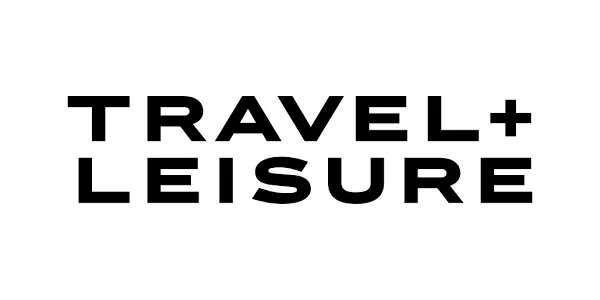Everything you need to know about your journey to Atzaró Cape Town
Below are the most frequently asked questions from our guests. Please get in touch if you need any further information.
frequently asked questions
Children of all ages are welcome at Atzaró Cape Town but should be under permanent parental supervision. Parents should note that Atzaró Cape Town has several staircases without child safety gates or a guarded swimming pool. Children over 16 years of age are considered as adults.
Please note that none of the bedrooms have extra beds for children, and room capacity would have to be taken up. Two camper cots are available for infants.
Our personal cooks at Atzaró Cape Town, are adept at catering to a wide range of dietary preferences and needs. To ensure the best dining experience for you, we recommend providing advance notice of your dietary requirements. This way, we can prepare and serve meals that align with your needs and preferences.
Cape Town International Airport is 20 minutes from Atzaró Cape Town and the CBD and 30 minutes from Clifton, Camps Bay and Constantia. During peak times you should allow additional time.
1390km (863miles) or a 14-hour drive or 2-hour flight
To travel to Cape Town, you will need a valid passport (with at least one month of valid post-departure) and possibly a visa if your country requires it. You also need a return or onward ticket.
Yes, it is highly recommended, and most airlines offer or assist with travel insurance when booking your flights.
Like many places, Cape Town has safety concerns, but with the necessary precautions and awareness, it can be a safe and enjoyable place to visit. Familiarise yourself with your surroundings while travelling: It is important to stay vigilant in tourist areas, avoid walking alone at night, and not leave belongings unattended. Overall, hundreds of thousands of tourists safely visit Cape Town every year.
Travelling to Cape Town alone can be a rewarding and safe experience, but emphasis needs to be placed on precautions. As a solo traveller, it’s recommended that you plan ahead to ensure your safety. Do not walk alone at night, particularly in poorly lit or isolated areas. Always use a reputable transfer company or an Uber Black to get around, and keep an eye on your belongings, especially in crowded areas.
It’s always best to consult with a healthcare provider or travel medicine specialist well in advance of your trip to determine which vaccinations are necessary for you based on your individual circumstances and planned activities.
South African doctors and specialists have a worldwide reputation for excellence, and as a result, many travellers to South Africa come to make use of its medical services. Travellers should, however, ensure they have health coverage when visiting this country.
Medical care in South Africa is easily accessible and available to travellers. Still, it’s a good idea to know the basics of the local healthcare system when you travel to this country.
In the major cities, you’ll find excellent infrastructure in the form of private clinics, hospitals and nursing homes; however, the rural areas are not as well provided for.
The South African medical profession has an excellent reputation worldwide, and doctors must be registered with the Health Professions Council of South Africa to practise. If you need to see a doctor in private practice, you will need to make an appointment.
Be sure to take out medical insurance before your trip to cover you in the event of a medical emergency that may require swift medical attention from private doctors, hospitals or emergency services.
State-run hospitals have emergency units, but due to long queues and limitations in staff capacity and facilities, visitors are more likely to be treated in private institutions.
Most hospitals or clinics in South Africa expect payment upfront for walk-in appointments or full details of your medical coverage before treating you. This is standard practice for private facilities throughout the country.
Pharmacies are readily available throughout the country, including in chain stores like Clicks and Dischem. If you need specific prescription medication, be sure to bring along a script from your own physician. Also, be aware that certain medications may have a different name to the one you use back home.
The range of medical professionals is vast, and in the urban centres, you should find a specialist should you need one.
Yes. Tap and bottled water are readily available throughout the city. It is also perfectly safe to drink tap water in Cape Town – the water is rated as being of a top global standard.
English is widely spoken in South Africa, along with 11 other official languages, which now include South African Sign Language. English is the language of business, government, and education, making it the most commonly used language for communication among South Africans. While there are variations in dialect and accent, visitors to South Africa should generally have no problem communicating in English.
One of the most popular ways to get around Cape Town is car rental, which allows flexibility and easy access to outlying areas. There are several reputable car rental companies located throughout the city. Uber or Bolt are also widely available in Cape Town and provide a convenient and safe way to travel. As a general rule, Uber Black is always recommended.
Public transportation options include the MyCiTi bus system, which operates on a scheduled route throughout the city. Ultimately, the best way to get around Cape Town will depend on your personal preferences and travel plans.
The currency used in South Africa is the South African Rand (ZAR). It’s advisable to exchange foreign currency at banks, bureau de Changes, or authorized forex dealers. Exchanging foreign currency is generally easy in South Africa, with banks, forex bureaus, and ATMs widely available throughout the country.
Bank cards are widely accepted in Cape Town, and most establishments, including restaurants, hotels, and shops, accept major credit cards such as Visa and Mastercard. ATMs are also easily accessible, allowing travellers to withdraw cash using their bank cards. While bank cards are accepted in most places, it’s still a good idea to carry some cash, especially when travelling to more rural areas or small towns where card acceptance may be more limited.
Eating out in Cape Town can be affordable, with plenty of budget-friendly options available. However, prices can vary depending on the type of restaurant and location, and fine dining establishments can be expensive. From classic South African dishes to international cuisine, Cape Town has an array of restaurants to satisfy every palette.
In Cape Town, it is recommended that you tip between 10 and 15% of your bill at restaurants. You may also tip hotel staff and tour guides using the same guidelines.
Cape Town’s weather resembles the Mediterranean climate, with mild, wet winters and warm, dry summers. The city enjoys a reputation for its sunny days and gorgeous beaches, but its weather is also known for being quite unpredictable.
During the winter months from May to August, Cape Town can experience heavy rainfall and strong winds. The temperatures range from 7°C to 18°C, and the city can become quite chilly during this season. It is advisable to pack warm clothing and rain gear if travelling during this time.
From September to April, Cape Town experiences hot, dry summers. The temperatures can range from 15°C to 27°C, and the weather is generally pleasant and sunny. However, occasional heatwaves can cause temperatures to soar, and droughts can also occur.
Summer tends to be hot and windy. Since Cape Town is built around Table Mountain, subclimates and areas like Clifton and Sea Point get less or no wind. Cape Town is the kiteboarding capital of the world in summer; that should say enough about the wind.
Overall, Cape Town’s weather is influenced by its coastal location, with frequent changes in temperature and weather patterns. Visitors should be prepared for all types of weather when travelling to Cape Town, regardless of the season.
A beach holiday is best during peak summer from December to February. Late April to early June has crisp and clear days. July and August are mid-winter and have the most rainfall, but there are also frequent beautiful sunny days. Depending on your interests, the off-season can be a great time to visit Cape Town, which is a little quieter and is the ideal time to tie in a safari to Atzaró Okavango. Cape Town has a strong South Easter wind that blows frequently from November to January.
The Mother City’s weather patterns really are as bold and diverse as her personality. You may have heard a time or two what Capetonians lovingly refer to as ‘lucky-packet-weather,’ and that’s exactly what you can expect – Anything and everything!
While a beautiful Cape Town day may bring with it sunshine, blue skies, and a clear view of Table Mountain, it can just as easily throw a strong South-eastern wind, dark clouds, and gloomy drizzle your way. Don’t be surprised if you experience a scorching hot summer’s day in the dead of winter, a sudden downpour on a beautiful summer’s day, or a wild windstorm completely out of the blue either – This is Cape Town, after all, which means you can chuck the weather handbook and seasonal rule guide right out the window.
It is not uncommon to experience all four seasons in one day, but what Cape Town lacks in predictability, it makes up for in boundless beauty, activities that suit every season, and endless opportunities to immerse in the rhythm of South Africa’s Mother City.
Due to Cape Town’s wildly unpredictable and ever-changing weather ways (regardless of the specific season you are travelling to Cape Town), the best thing to do is to pack a little bit of everything.
Essential packing items for Cape Town travel include:
- Sunblock
- Hat/hats
- Sunglasses
- Few pairs of comfortable walking shoes or hiking shoes
- Swimwear
- A windproof or rainproof jacket
- Lightweight clothing that can be layered
- Warm fleece jacket or pullover
- A secure bag or backpack that can be fastened to carry your belongings when out and about.
- A power bank for charging phones during intermitted load-shedding
- An E-SIM card
Fortunately, there are many ways to meet people in Cape Town, making it easier to navigate the city safely. You can join a guided tour, take a cooking class, or even participate in a local cultural activity.
Load shedding is a temporary power outage that occurs when there is an electricity supply shortage. As a visitor, you must be certain that the hotel you are staying at has a backup power supply. Stay informed about your local load-shedding schedule by downloading the app “Eskom se push” on the Google Play store or the App Store.




























